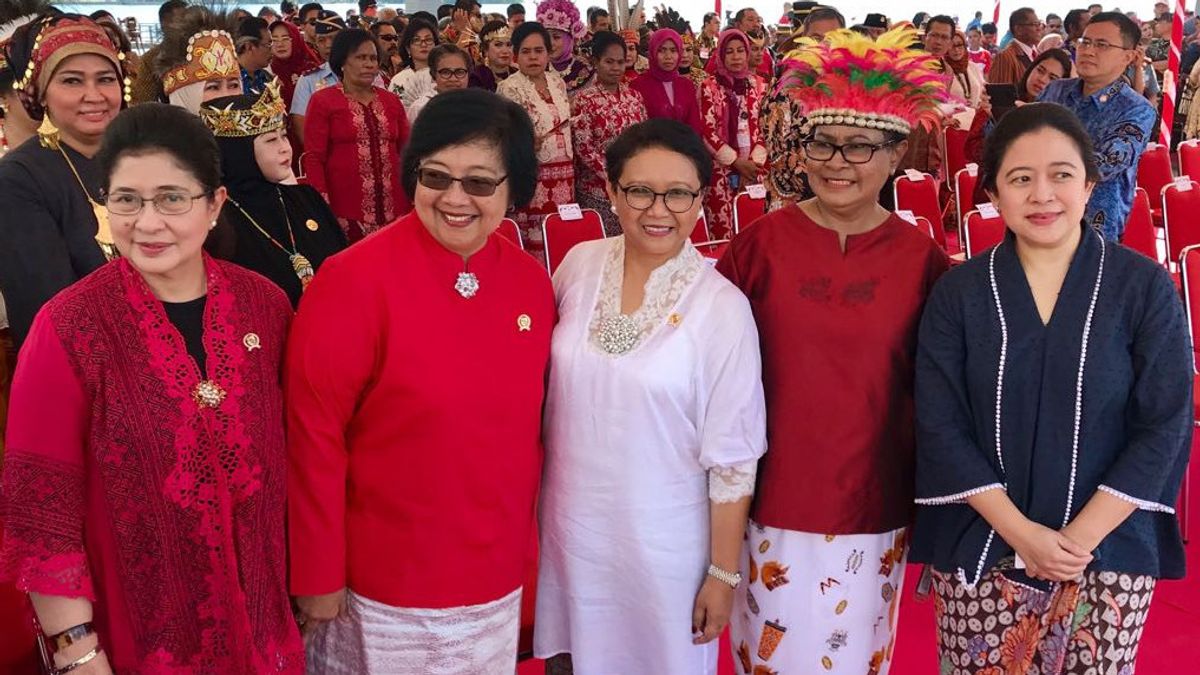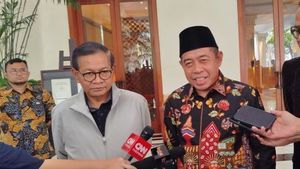JAKARTA - Politics and women are two things that are considered difficult to put together, but are being pursued. Women's involvement in politics is still underestimated, even though they have an important role for long-term policies.
Women are not the dominant actors in the political realm of various countries, including in Indonesia. According to data from the Central Statistics Agency (BPS), in the 2019-2024 period, only 120 women were able to occupy the seats of the DPR RI out of a total of 575 people. This means that this number has only reached 20.87 percent of the total members of the DPR RI from the results of the 2019 Legislative Election.
This figure does show an upward trend in both the number and percentage compared to the previous three edition elections. But although women's participation in politics has developed in recent years, women's representation in politics is still low.
The lack of representation of women in the political field is partly due to patriarchal cultural conditions. In countries that adhere to patriarchal values such as in Indonesia, women's opportunities to become politicians are relatively limited due to public perceptions about the division of roles between men and women, which tend to limit women's role in household affairs.
Rahayu Saraswati Djojohadikusumo, a Gerindra Party politician, said the importance of women's representation in parliament. However, this does not mean that this is an obligation because the most important thing, according to him, is a person who is able to carry out his duties as a representative of the people.
"Data around the world proves, with the existence of women's representation in leadership in any field, both in business and government, showing a very good trend, positive or added value clearly visible," said the woman who is familiarly called Sara to VOI.
"But is that a must? This can be debated, because I think it will come back again, as long as he (male or female) can carry out that important task," he continued.
"But of course it would be great if we look at the representation of women in the cabinet which adequately describes the abilities of Indonesian women," said Sara again.
Talking about women's emancipation, it cannot be separated from the figure of the hero of the RA Kartini nation. It can be said that Kartini started the struggle so that women can get the same rights as men, one of which is to open access to education. By getting the same educational opportunity as men, women are expected to have the same opportunities in other fields.
More than a century after Kartini breathed her last on September 13, 1903, the struggle to achieve women's emancipation is still being pursued.
Sara assessed that the view that women are helpless was caused by the Indonesian people who often forget history. Even though RA Kartini is only one of the many female heroes who have an important role in fighting for Indonesian independence.
What is often forgotten is why women are at a point of being considered helpless? Because we don't learn history. Our nation has low literacy, if low literacy automatically doesn't read history. Reading and understanding history are two different things. If we learn history, we will see female characters in Indonesia, how great they are," Sara explained.
So it's not because women don't have the ability, don't have the capacity, not because women don't want to, but because this nation has completely forgotten its history, this woman who was born in January 1986.
Since the post-reform era, the presence of women in the government cabinet has continued to increase. During the reign of BJ Habibie (1998-1999), Abdurrahman Wahid (1999-2001), Megawati Soekarnoputri (2001-2004) there were two women ministers each. Then in the era of Susilo Bambang Yudhoyono (2004-2009) there were four women ministers and five people in the next period.
Meanwhile, when Joko Widodo took office in the first period, there were eight female ministers, and in the 2019-2024 period there were five female ministers, before entering Tri Rismaharini as Minister of Social Affairs.
SEE ALSO:
But Sara said the presence of women in the cabinet or as leaders in other fields is still considered as something 'wah' for the community. She longs for a time when women become leaders, in any field, is commonplace that doesn't need to be seen as something different.
"That I am still sitting here to explain the problem of women, this is where the problem is," he said.
I miss where women as leaders are normal. When we don't talk about women's leadership anymore, it's over," concluded Sara.
The English, Chinese, Japanese, Arabic, and French versions are automatically generated by the AI. So there may still be inaccuracies in translating, please always see Indonesian as our main language. (system supported by DigitalSiber.id)













